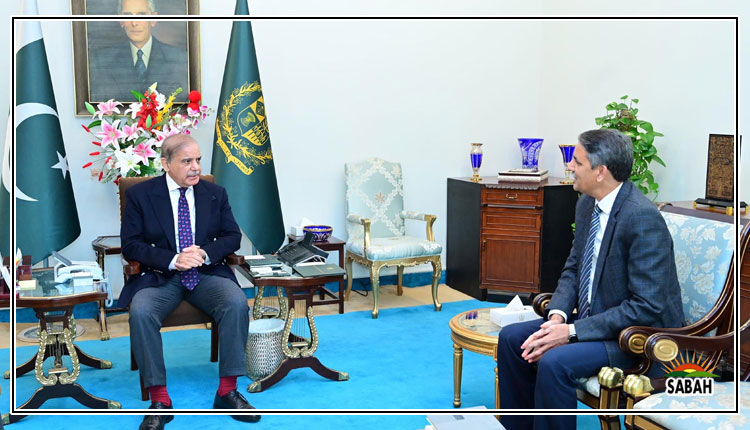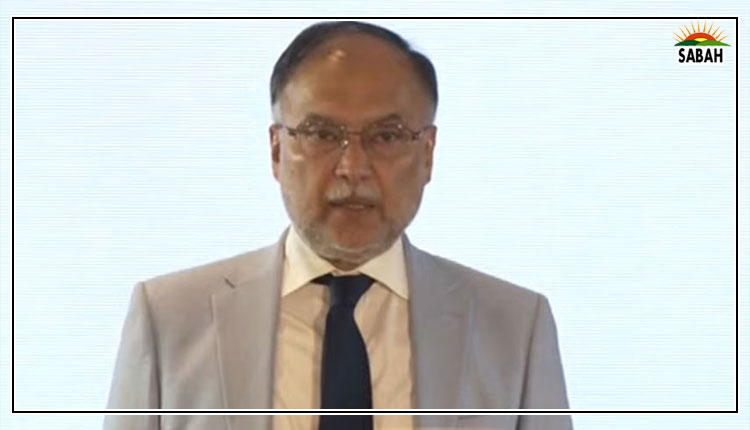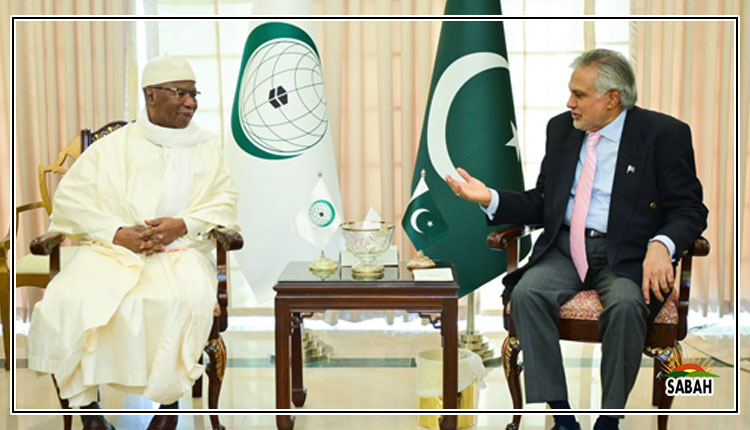Prioritizing women hygiene is crucial to the socio-economic development of the country
ISLAMABAD, June 05 (SABAH): United Nations International Children’s Emergency Fund (UNICEF) in collaboration with Santex Products, the manufacturers of sanitary napkin, recently organized the Policy Level Dialogue on Menstrual Health & Hygiene Tax Reforms. A pioneering initiative, the dialogue was a continuation of the ethnographic research on menstrual health and hygiene conducted by the two partners in 2022.

The discussion brought together prominent stakeholders from government, non-profit organizations, and the private sector who all urged the government to address the pressing issue of period poverty and advocate for policy reforms aimed at reducing financial barriers to accessing menstrual products. Menstrual pads are currently subject to Luxury Tax.
Chief Guest at the occasion, Ms. Mehnaz Akbar Aziz, Member of the National Assembly and Chairperson for the Parliamentary Committee on Law and Justice agreed to raise this issue in parliament and will support tax reforms. She was joined by Dr. Inoussa Kabore, Deputy Representative UNICEF Pakistan and Fawaz Ahmed, Head of Marketing Santex Products along with other dignitaries.
The dialogue highlighted the findings of the recent ethnographic study on Menstrual Health & Hygiene in Pakistan, aiming to foster collaboration among key stakeholders for the development of effective strategies for address period poverty.
Distinguished speakers and panelists shared valuable insights, experiences, and successful initiatives from around the world and encouraging the policy makers and the private sector to replicate these approaches while respecting local customs in Pakistan. Women, especially young girls, in disaster hit and rural areas of Pakistan require immediate assistance in this matter. Participants engaged in thoughtful discussions on various approaches to reduce or eliminate taxes on products directly linked to women’s health as well as maximizing the government’s to financial potential by reaching millions of untapped consumers.
In her address, Ms. Mehnaz Akbar Aziz expressed her deep concerns when revealing that only 7% of Pakistani women use sanitary napkins, due to reasons such as high cost, unavailability, social taboos and lack of awareness. She emphasized the urgent need for easily accessible sanitary napkins at a nominal, affordable cost nationwide. Ms. Aziz called upon the government, Budget committee, and relevant institutions to recognize sanitary napkins as necessities rather than luxury items. She passionately urged for tax exemption and price reduction to ensure the availability of these essential products to all women in the country.
Dr. Inoussa Kabore expressed gratitude to Ms. Mehnaz Aziz and all participants for their invaluable contributions, urging the government, civil society organizations, private sector partners, and individuals to come together in addressing menstrual health challenges, challenging societal norms, and implementing sustainable solutions.
Fawaz Ahmed, Head of Marketing at Santex Products, underscored the significance of the dialogue in addressing period poverty and advocating for policy reforms. He emphasized the importance of tax reductions or exemptions on menstrual products to alleviate the financial burden faced by menstruating individuals, promoting menstrual equity while upholding their dignity.
In light of the discussions, the following proposed period tax reforms have been put forward:
• Designating locally manufactured sanitary napkins as an ‘essential item’ and including them in the Sixth Schedule of the Sales Tax Act, 1990, alongside food and medical supplies.
• Alternatively, considering a suitable reduction in sales tax by adding locally manufactured sanitary napkins and their key raw materials to the Eighth Schedule of the Sales Tax Act, 1990.
• Excluding sap paper, which is a essential raw material for sanitary napkins constituting approximately 26% of the total cost, from the list of non-essential luxury items currently subject to the highest sales tax rate of 25%.












